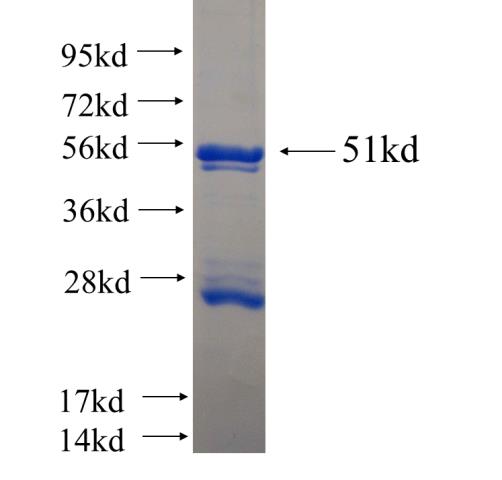-
Product Name
Human REDD1 Recombinant protein (N/A)
- Documents
-
Description
Regulates cell growth, proliferation and survival via inhibition of the activity of the mammalian target of rapamycin complex 1 (mTORC1). Inhibition of mTORC1 is mediated by a pathway that involves DDIT4/REDD1, AKT1, the TSC1-TSC2 complex and the GTPase RHEB. Plays an important role in responses to cellular energy levels and cellular stress, including responses to hypoxia and DNA damage. Regulates p53/TP53-mediated apoptosis in response to DNA damage via its effect on mTORC1 activity. Its role in the response to hypoxia depends on the cell type; it mediates mTORC1 inhibition in fibroblasts and thymocytes, but not in hepatocytes (By similarity). Required for mTORC1-mediated defense against viral protein synthesis and virus replication (By similarity). Inhibits neuronal differentiation and neurite outgrowth mediated by NGF via its effect on mTORC1 activity. Required for normal neuron migration during embryonic brain development. Plays a role in neuronal cell death. {, PubMed:15545625, PubMed:15632201, PubMed:15988001, PubMed:17005863, PubMed:17379067, PubMed:19557001, PubMed:20166753, PubMed:21460850}.
-
Protein name
DNA damage-inducible transcript 4 protein
-
Protein short names
REDD1; RTP801
-
Uniprot ID
Q9NX09
-
Gene Name
DDIT4; REDD1; RTP801
-
Source/Expression Host
E. coli
-
Expression Plasmid/cDNA
A DNA sequence encoding the human DDIT4 (NP_061931.1) 1-232 aa was fused with the N-terminal GST tag
-
Protein Species
Human
-
Activity
Not tested.
-
Validations

Recombinant human REDD1 SDS-PAGE
Related Products / Services
Please note: All products are "FOR RESEARCH USE ONLY AND ARE NOT INTENDED FOR DIAGNOSTIC OR THERAPEUTIC USE"
